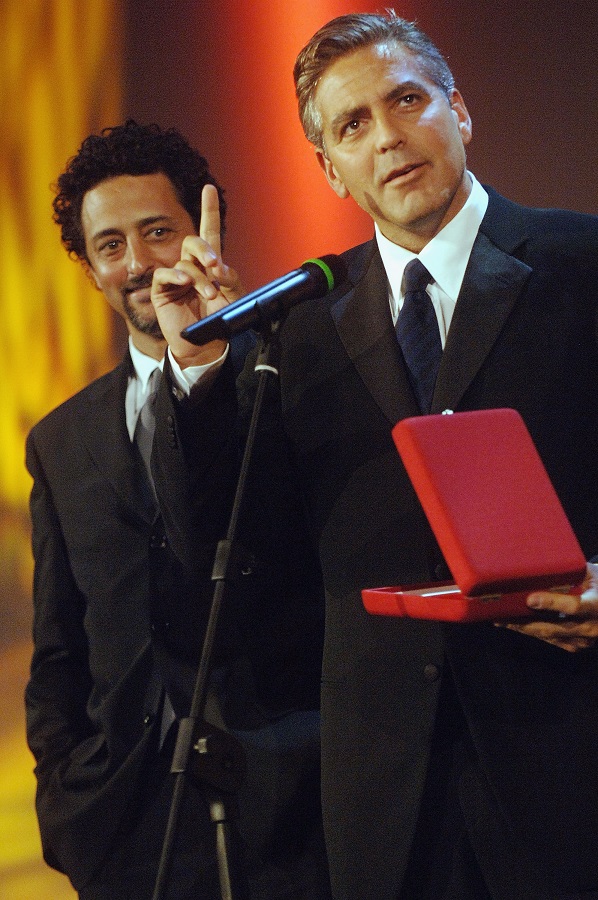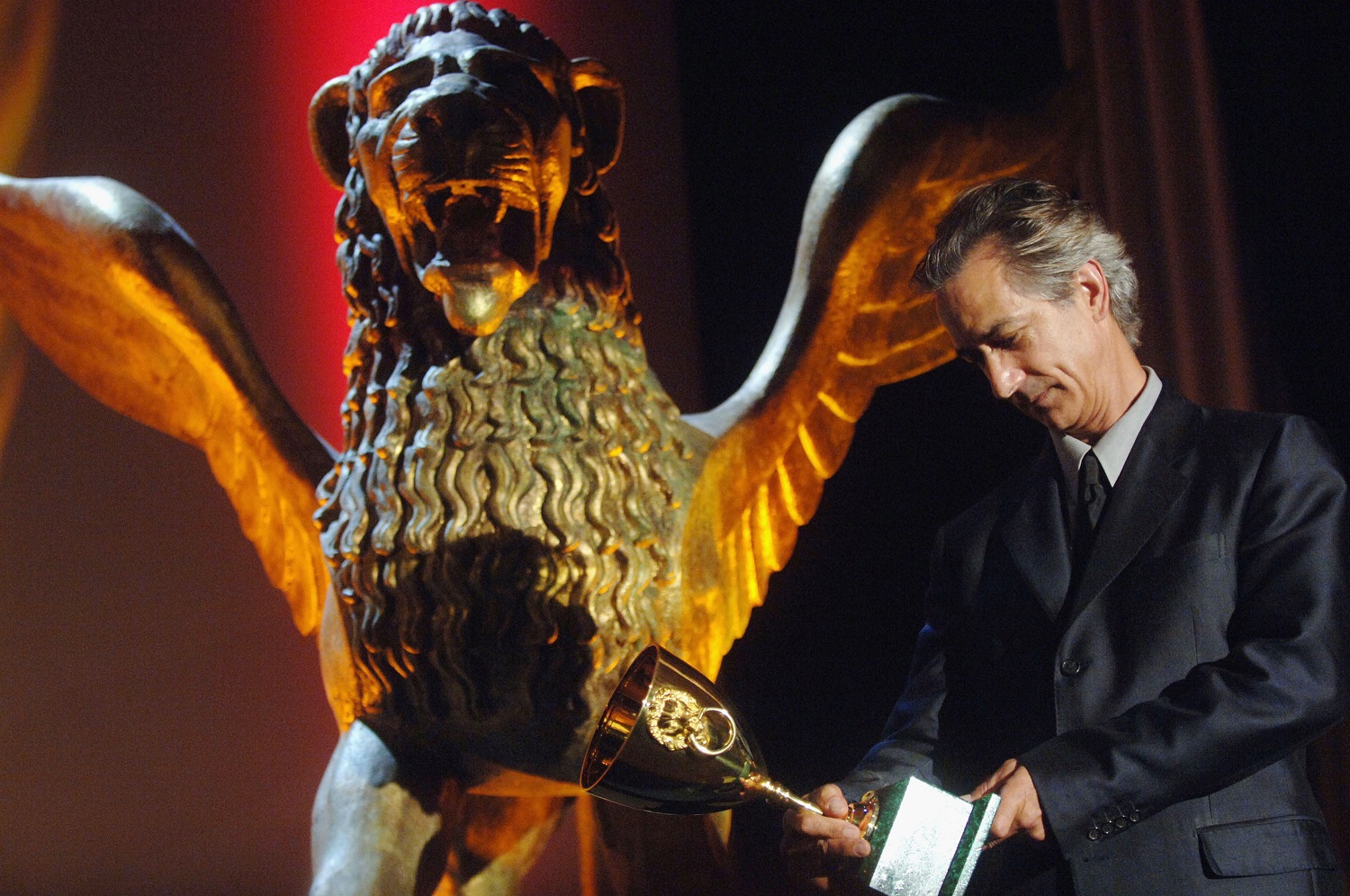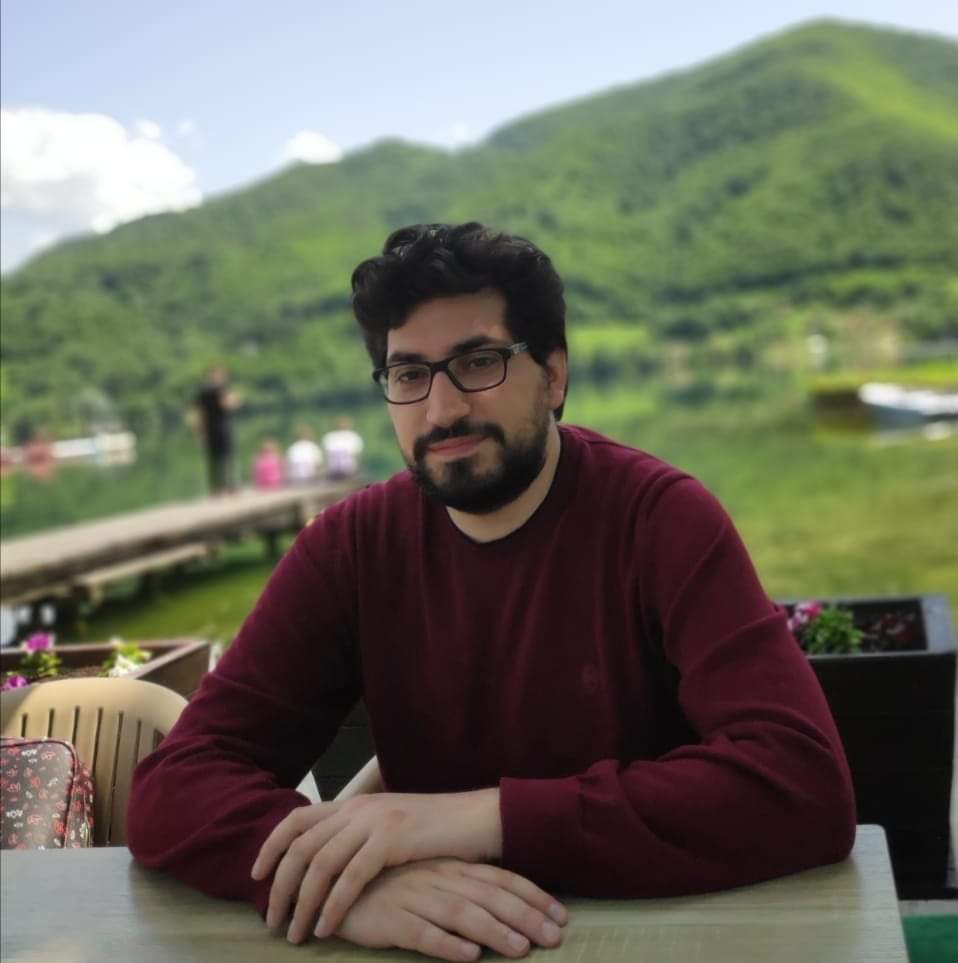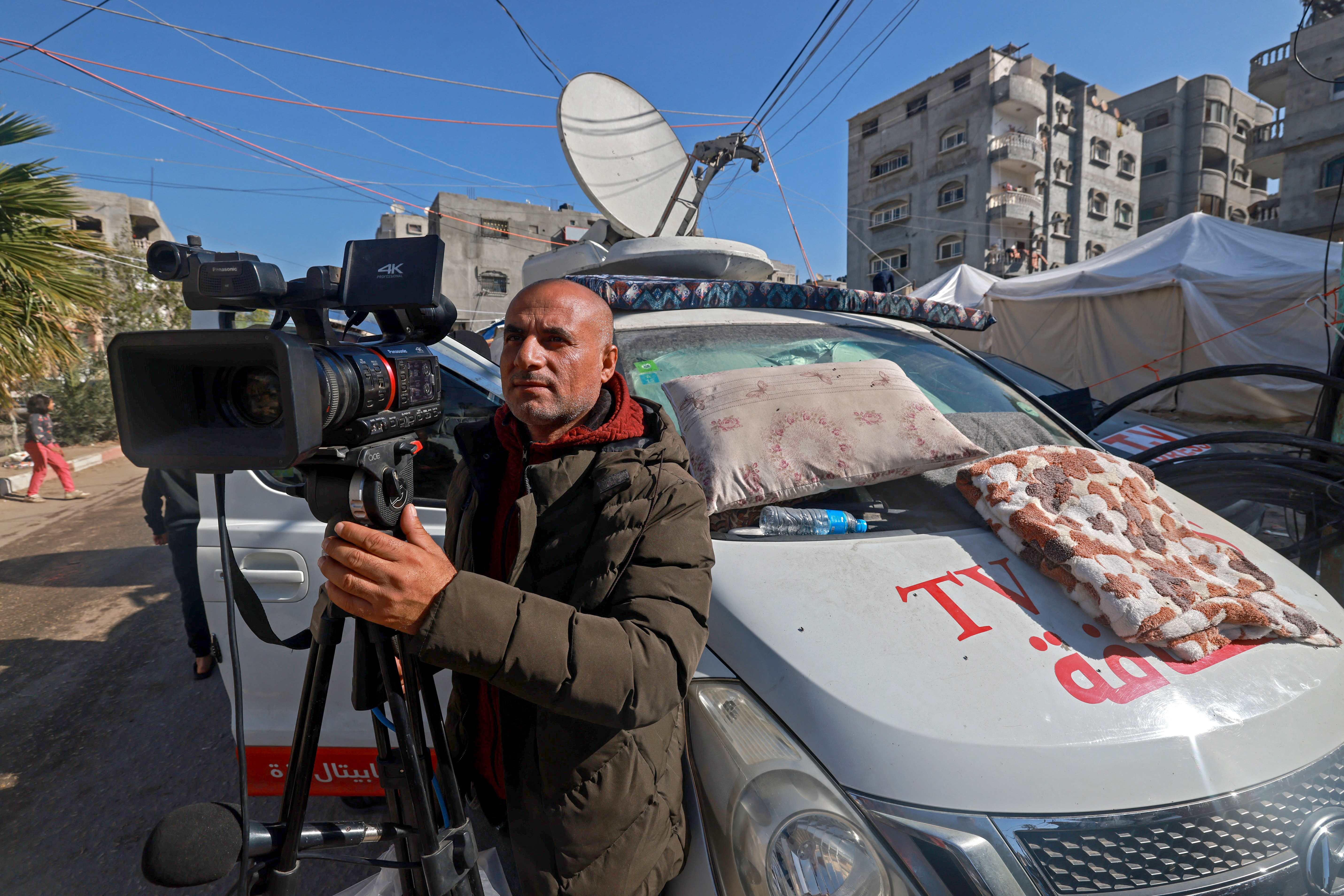ودع إدوارد روسكو مورو مشاهدي النشرة الإخبارية على التلفزيون بهذه الجملة: "كل شيء سيكون على ما يرام". مورو كانت لديه فكرة أن التلفزيون سوف يتطور في اتجاه برامج المعلومات والترفيه فقط. عام 1958 حصل على جائزة وتحدث عن قناعته حول مستقبل التلفزيون والصحافة قائلا:
"سيكون تاريخنا هو ما نصنعه الآن. عندما يشاهد المؤرخون بعد خمسين أو مئة عام جميع القنوات التلفزيونية الموجودة الآن؛ سيجدون دليلا على الانحطاط، على الهروب والعزلة عن حقائق العالم الذي نعيش فيه. نحن الآن أثرياء، بدينون، مرتاحون، وراضون...
التلفزيون في الأساس يستخدم لإلهائنا، تضليلنا، تسليتنا وعزلنا عن الواقع. أولئك الذين يعملون في التلفزيون يشاهدون صورة مختلفة عن تلك التي يراها المشاهد، ولإيصال الصورة الصحيحة ربما يكون قد فات الأوان".
بهذا المشهد يبدأ فيلم الممثل والمخرج الأميركي جورج كلوني "ليلة سعيدة، وحظ طيب". يشكل المشهد إعادة تمثيل لخطاب شهير ألقاه مورو في مؤتمر مديري الأخبار في الإذاعة والتلفزيون عام 1958.
إدوارد مورو واحد من أهم وأعظم رموز الصحافة في أمريكا. بدأ حياته من خلال إذاعة أخبار الراديو خلال الحرب العالمية الثانية، وكان يتابعه الملايين في الولايات المتحدة الأمريكية وكندا. عمل بعدها في أخبار التلفزيون، وكان يعتبر الأكثر نزاهة في تناول الأخبار.
فيلم "ليلة سعيدة، وحظ طيب" يستند إلى قصة حقيقية أو معركة وجود وحرية حدثت في الخمسينات من القرن الماضي، حيث واجه مورو مدير شبكة "سي بي سي" التلفزيونية، إجراءات لجنة الأنشطة غير الأمريكية بقيادة السيناتور جوزيف مكارثي الذي كان يحاول تطهير الولايات المتحدة من المتعاطفين مع الشيوعية.
عندما بدأ مكارثي حملته لاستئصال الشيوعيين في أمريكا، كرس مورو نفسه وبذل قصارى جهده، بدعم من فريق إخباري يضم صديقا ومنتجا قديما وهو فرد فريندلي، لكشف أكاذيب وتجاوزات السيناتور على الرغم من ضغوط الشركات الراعية للشبكة للتوقف.
باستخدام لقطات أرشيفية، وواقعية درامية ووثائقية وصور فوتوغرافية ومشاهد بالأبيض والأسود، التقط جورج كلوني نسيج الفترة الزمنية، وتكيف مع الموضوع العام للقصة، ووضع المعركة في موقعها دون انحرافات لا حاجة لها تبعدنا عن القصة الحقيقية والحرب الباردة التي كان يشنها مكارثي على الصحافة، والتي ألحقت الضرر بالحرية الأيديولوجية، ودفاع مورو عن الصحافة وحريتها بكلمته المشهورة: "لن نسير ونحن نخاف من بعضنا البعض"، ودفاعه المستميت عن الصحافة وخوفه على مستقبلها من خلال صراخه المتكرر "الموقف غير المستقر للصحفي الذي يستعمل الوسائل التي يتم تطويرها والتي ستستمر بالنمو، هو بسبب المزيج المستحيل من الأخبار، وعالم الأعمال، والاستعراضات والترفيه والإعلانات".
يشكل الفيلم نظرة ثاقبة حول وسيط صحفي ناشئ وهو التلفزيون، وصدام السلطة الرابعة مع السلطة السياسية. وبنبرة وثائقية وصحفية ودون ديماغوجية مفرطة أو خطاب عالٍ، ودون اندفاعات كاريكاتورية ونبرة سطحية؛ وضح الفيلم المعركة وطريقة الصحفيين الأوائل في عملهم وشغفهم وإيمانهم بالصحافة. وفي الوقت نفسه يشرح كيف يمكن للسياسة والسياسيين التلاعب بالصحافة، وكيف يمكن لبعض الصحفيين التماهي معهم لأسباب شخصية ومهنية. لقد استخدم مكارثي الصحافة التلفزيونية بطريقة شعبوية: بث معلومات مغالطة، وتخدير الضمائر واستخدام الإرهاب اللفظي ضد الشيوعيين وضد كل من هو مختلف. وفي نفس الوقت كان مورو وفريقه يكشفون الحقائق بالتزام وجدية ورؤية واضحة وكلمات عنيدة مثل: "لا يمكن لأحد سلب حريتنا الصحفية".
يركز الفيلم بالتحديد -وبشكل خاص- على الأحداث الحقيقية التي حصلت على التلفزيون. فضح مورو مآسي الصحافة، ملمحا إلى تدهور التلفزيون كوسيلة إعلامية، وخضوعها للدعاية وتفوق الترفيه على الأخبار. إنه يهاجم بأسلوب حازم، لا هوادة فيه، الانحدار السلبي الذي بدأ يلاحظه على شاشة التلفزيون الذي كان محل نقاش وبحث وتحليل وصراع بين الأخبار السياسية والوطنية، وبين برامج المسابقات والترفيه التي تبعد المشاهد عن التفكير والتشكيك في طبيعة الأحداث اليومية.
يعد الفيلم درسا ممتازا في الصحافة باعتبارها السلطة الرابعة وأداة التنديد، ونقدا يدعو إلى إعلام قادر على التعامل مع أي فساد سياسي أو إعلامي، والدفاع عن حرية التعبير والصحافة، دون الخضوع لضغوطات الشركات الكبرى والرأسمالية.
يلقي الفيلم نظرة خاطفة على عالم التلفزيون في فترة المراهقة، ويوجه انعكاسات ولمحات عن الحاضر، محافظا على أحداث الماضي التي لديها تأثير مباشر على الحاضر. يقدم الفيلم، أيضا، المعلومات والآراء في وسائل الإعلام والقوة التي دائما ما تحاصر الصحفي النزيه الذي لا يفقد أبدا مبادئه تجاه مهنة الصحافة.
كما أن الفيلم يحتفي بالصحفيين المخضرمين الذين لا يمكن العبث معهم، والذين يقولون أي شيء دون خوف، مثل مورو في كلماته في برنامجه، والذي يهاجم أي أحد يعبث بالصحافة والحرية: "لا أحد على دراية بتاريخ هذا البلد، من الضروري التحقيق قبل التشريع. كان الخط الفاصل بين التحقيق والاضطهاد رفيعا جدا وقد تجاوزه عضو مجلس الشيوخ مرارًا وتكرارًا. يجب ألا نخلط بين المعارضة وعدم الولاء. يجب أن نتذكر دائمًا أن الاتهام ليس دليلا، وأن الإدانة تعتمد على الأدلة والإجراءات القانونية الواجبة. لن يدفعنا الخوف إلى عصر اللاعقلانية. إذا تعمقنا في تاريخنا وعقيدتنا، نتذكر أننا لسنا منحدرين من رجال جبناء، لسنا من الرجال الذين يخشون الكتابة والمشاركة والتحدث والدفاع عن القضايا. يمكننا أن ننكر تراثنا وتاريخنا ولكن لا يمكننا الهروب من المسؤولية. يجب أن نعلن أنفسنا كما نحن، مدافعون عن الحرية".
الفيلم لا يتعلق ببناء سيرة ذاتية حول أشهر رواد الصحافة، بقدر ما هو تركيز على فترة زمنية كان فيها هؤلاء الصحفيون المحترفون يدمرون أي أحد يتجرأ على التفوه بأكاذيب والعبث مع نجم إعلامي. ورغم أن أحداث الفيلم تدور في الخمسينات من القرن الماضي، إلا أنه من المستحيل عدم مقارنة اللغة المتطرفة المستعملة في الإعلام آنذاك واليوم.

"الشيوعية اليوم أصبحت هي "الإرهاب"، وهي عبارة كانت توظف فقط لتقييد الحريات واستثمار الخوف من خلال وسائل الإعلام القوية. الأوقات العصيبة تصنع أبطالًا، ومورو هو أحد هؤلاء الأبطال. لقد جعل خطاباته أفضل سلاح لكشف القناع والأكاذيب، وقدم خير مثال لأفضل صحافة تلفزيونية وشجاعة مهنية في مواجهة "العار". يجسد الفيلم أطروحة صحفية لا يُقصد بها أبدًا التلاعب بالمشاهد بل دعوته إلى لعبة ذكية.
عمل كلوني هو حكاية حول الشكل الذي يجب أن تبدو عليه الصحافة التلفزيونية المسؤولة. إنها قصة عن مجموعة صغيرة من الرجال الذين وقفوا في مواجهة الهيستيريا التمييزية، لو شئتم دراما إعلامية وسياسية نادرا ما خرجت من غرف التحرير واستوديوهات المحطة التلفزيونية.
الفيلم، كذلك، هو بمثابة دليل حول كيفية عمل الصحفي الذي لا يخضع للترهيب، والذي يعتبر النضال من أجل حرية التعبير أكثر أهمية من حياته المهنية الشخصية. إنه يروي قصة صحفيين مخضرمين بقيت قصتهم غير مروية، حاربوا نظاما قائما على الإشاعات والاتهامات. جورج كلوني الممثل، في الفيلم الثاني من إخراجه، كان يقدم التحية أيضا إلى والده، نيك كلوني، الذي كان في يوم من الأيام محرر أخبار وصانع حدث بل وجرب العمل السياسي، وكان مستاءً جدا من ما آلت إليه الأمور في الصحافة: "توقفت عندما أصبحت الأخبار عن الترفيه أكثر حضورا من المعلومات". هذه التجارب بين مورو ونيك كلوني تشكل مزيجا من الحنين إلى الماضي الصحفي والخوف على مستقبل وسائل الإعلام والعاملين فيه.










![Palestinian journalists attempt to connect to the internet using their phones in Rafah on the southern Gaza Strip. [Said Khatib/AFP]](/sites/default/files/ajr/2025/34962UB-highres-1705225575%20Large.jpeg)






























